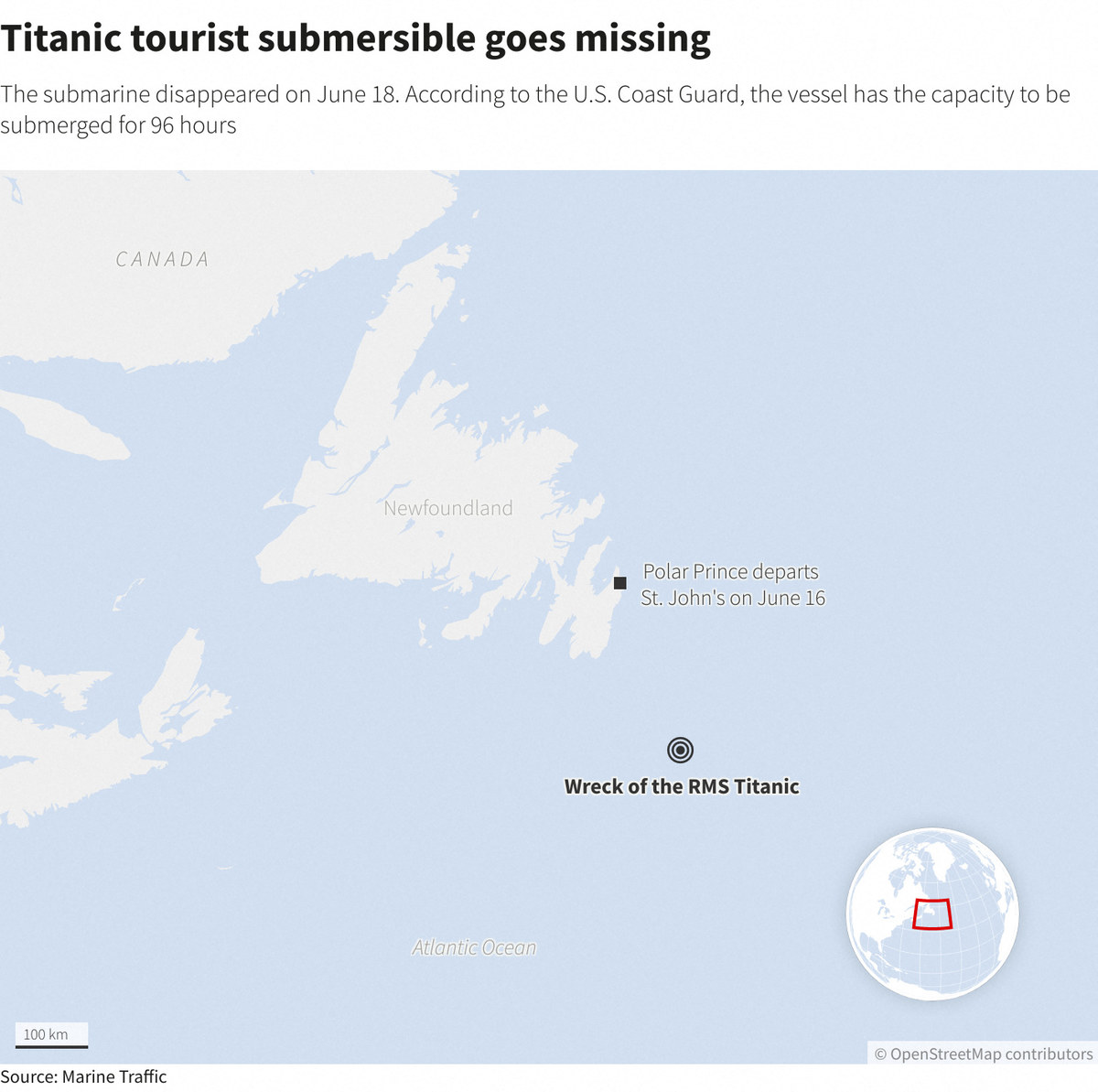ISLAMABAD: Engro Corporation said on Monday the Pakistani conglomerate’s vice chairman and his son were on a submarine that went missing more than a day earlier off the coast of southeastern Canada while taking tourists to explore the wreckage of the Titanic.
The US Coast Guard said there was one pilot and four passengers on board and that the vessel had the capacity to be submerged for 96 hours, but it was unclear whether it was still underwater or had surfaced and was unable to communicate.
Engro Vice Chairman Shahzada Dawood and his son Suleman were both onboard the sub, Engro said, asking people to avoid speculation.
“All that we know so far is that contact was lost with their submersible craft,” the company said in a statement. “A rescue effort is being jointly led by multiple government agencies and deep-sea companies to find and bring home Shahzada, Suleman and all onboard.”
US and Canadian ships and planes have swarmed the area about 900 miles (1,450 km) east of Cape Cod, some dropping sonar buoys that can monitor to a depth of 13,000 feet (3,962 meters), US Coast Guard Rear Admiral John Mauger told reporters on Monday.
“It is a remote area and it is a challenge to conduct a search in that remote area,” Mauger said.
“We are deploying all available assets to make sure that we can locate the craft and rescue the people on board,” he said. “Going into this evening we will continue to fly aircraft and move additional vessels.”

The graphic shows the location of wreck of the RMS Titanic and the location where the missing submersible departed from. (Courtesy: Reuters)
Mauger said officials have also been reaching out to commercial vessels for help.
The private company that operates the submarine, OceanGate Expeditions, said in a statement on Monday that it was “mobilizing all options” to rescue those on board.
British billionaire Hamish Harding is among the passengers, according to a social media post from a relative.
















